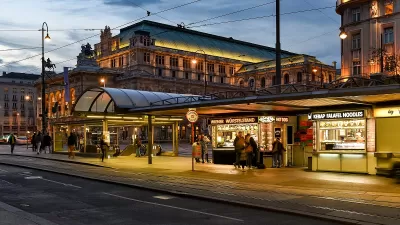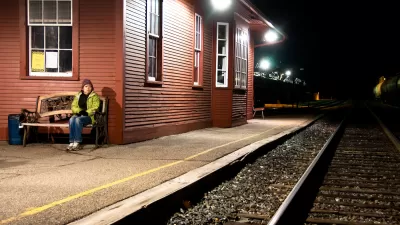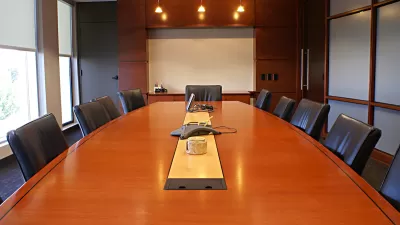An argument for embedding a feminist analysis into planning practice.

Women and other marginalized groups experience cities differently, writes Marion Roberts. "Experiences of sexual harassment and violence intersect with other social inequalities, especially those of class, race, disability and sexual orientation. To track all of these indicators through an urban planning and design agenda can be bewildering, drawing attention away from deep-seated, long-standing 'structures' of inequality that become embedded in the built environment and in the mindsets of politicians and planners."
Roberts calls for "A socialist-feminist approach [that] cuts through this technical complexity by demanding that the work of reproduction, of caring work and domestic responsibilities, typically undertaken by women and girls, be recognised and valued in equal measure to that of production. "
The article provides examples from several international cities that have implemented planning interventions using this approach. Vienna, the only city to fully embrace the concept, "takes accommodating the strains of reconciling waged work, housework and caring responsibilities as a central tenet of its planning strategy. Its development plan is based on a 'city of short distances' and providing for everyday life."
For example, the new urban extension to Vienna, Aspern Seestadt, connects its projected 20,000 households to Vienna city centre with a fast metro link, and includes different employment opportunities within the urban extension, as well as sufficient schools, nurseries, medical services, Austria’s first managed high street, hospitality and leisure facilities, facilities for refugees and a new urban park around the lake.
"In Mexico City, a programme entitled 'Safer Streets, Safer Trails' targeted at women has introduced better lighting, security cameras and alarm buttons over 200 kilometres of streets and paths. Combined with other improvements to public spaces, this has reduced street crime against women by 29 per cent and raised perceptions of safety in the period 2018-2021 by 40 per cent," Roberts writes.
Far from just improving the lives of urban women, Roberts argues that this approach to building cities can ensure fair and equitable access to amenities and economic opportunities for everyone.
FULL STORY: Building feminist cities

Alabama: Trump Terminates Settlements for Black Communities Harmed By Raw Sewage
Trump deemed the landmark civil rights agreement “illegal DEI and environmental justice policy.”

Study: Maui’s Plan to Convert Vacation Rentals to Long-Term Housing Could Cause Nearly $1 Billion Economic Loss
The plan would reduce visitor accommodation by 25% resulting in 1,900 jobs lost.

Planetizen Federal Action Tracker
A weekly monitor of how Trump’s orders and actions are impacting planners and planning in America.

Federal Homelessness Agency Places Entire Staff on Leave
The U.S. Interagency Council on Homelessness is the only federal agency dedicated to preventing and ending homelessness.

Restoring Northern India’s Himalayan ‘Water Temples’
Thousands of centuries-old buildings protect the region’s natural springs and serve as community wells and gathering places.

Milwaukee to Double Bike Share Stations
Bublr Bikes, one of the nation’s most successful, will add 500 new e-bikes to its system.
Urban Design for Planners 1: Software Tools
This six-course series explores essential urban design concepts using open source software and equips planners with the tools they need to participate fully in the urban design process.
Planning for Universal Design
Learn the tools for implementing Universal Design in planning regulations.
Caltrans
Smith Gee Studio
Institute for Housing and Urban Development Studies (IHS)
City of Grandview
Harvard GSD Executive Education
Toledo-Lucas County Plan Commissions
Salt Lake City
NYU Wagner Graduate School of Public Service





























